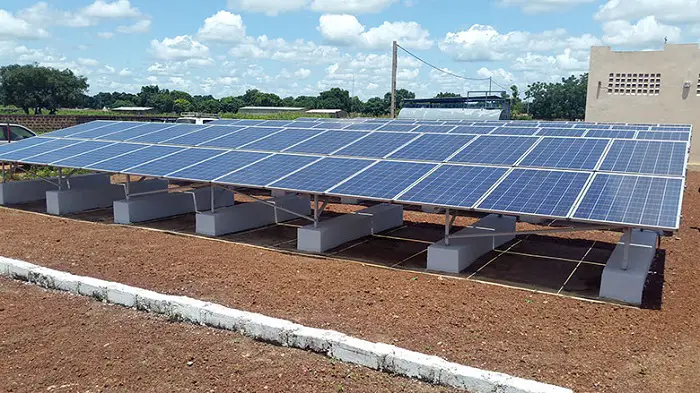An Africa power sector report- African Energy Atlas reveals that solar will make inroads into the African energy sector over the next two years. This will eventually account for 9% of new capacity additions, as renewables uptake across Africa continues to grow.
The proportion of new renewables, excluding hydropower, increased last year across all parts of the African continent; this is according to data from London-based consultancy, African Energy.
Also Read: Why Africa should embrace Solar Panels as an ideal energy saving solution
African Energy Atlas report
The new report shows that a net 15.5 GW of new installed energy capacity was added in Africa in 2017 and this kept up with the population growth across all parts of the continent, except Central Africa, as well as with GDP growth in all regions, except East Africa.
The report further analyses whether renewable energy use is increasing, and if the rate of increase is being sustained. In 2017, the proportion of clean energy sources rose across the continent, but only West Africa and Central Africa showed an increase in new renewables growth rate.
Brighter renewable energy future
The Sahel region is likely to have an even brighter renewable energy future this is due to the plans of hosting up to 10 GW of solar, following this year’s launch of the Desert to Power program, initiated by the African Development Bank, alongside the Green Climate Fund and the Africa 50 investment fund.
But for now, according to the consultancy’s data, new additions across the continent will be overwhelmingly dominated by natural gas. Indeed, with a total of 66 GW scheduled to be added from 2018-2020, natural gas will account for 45%, and will be heavily concentrated in North Africa.
Solar and wind
Solar and wind are expected to make inroads, accounting for 9% and 7% of scheduled capacity additions, respectively.
Meanwhile, in the sub-Saharan region, including South Africa, renewables are establishing a stronger foothold. According to the report, scheduled capacity additions over the next two years will come mainly from hydropower (32%) and natural gas (26%), along with coal (13%) and solar (12%).
